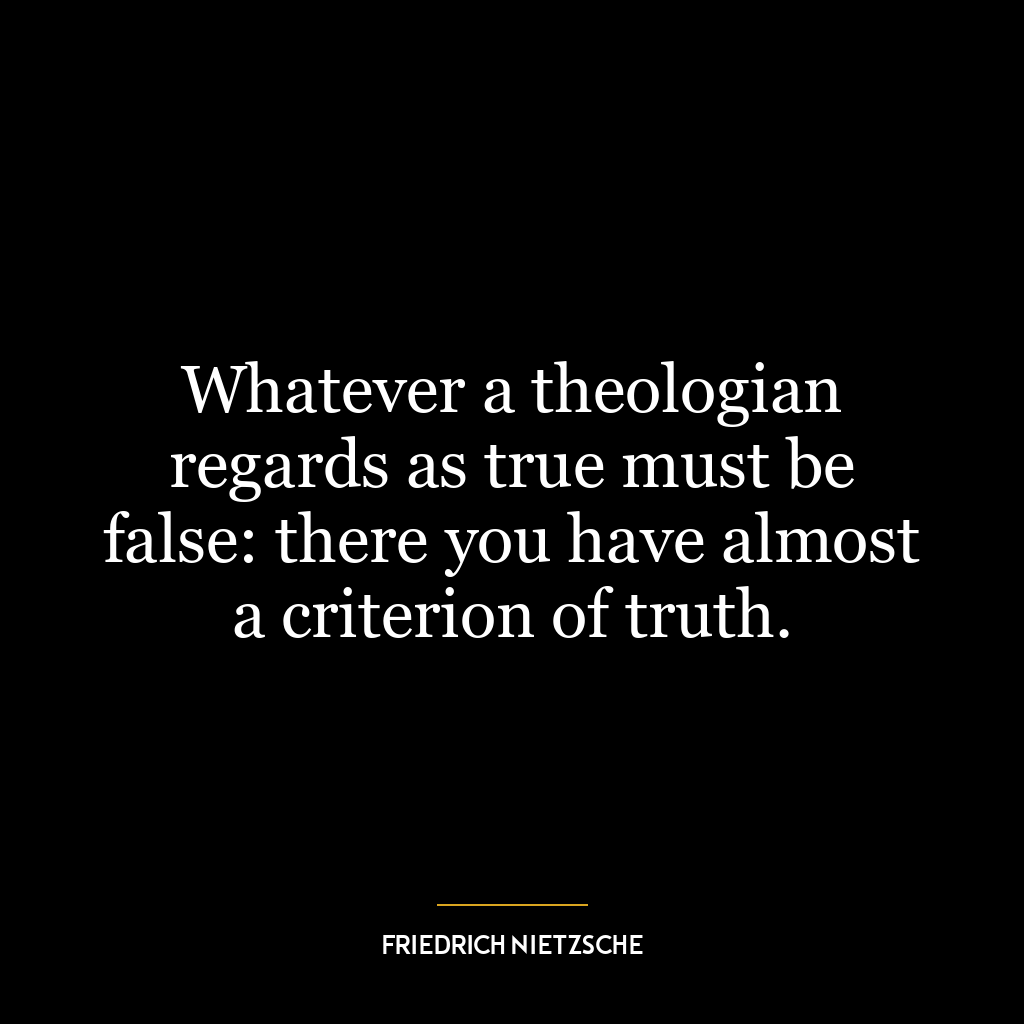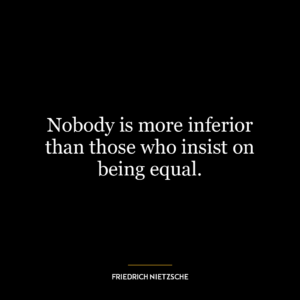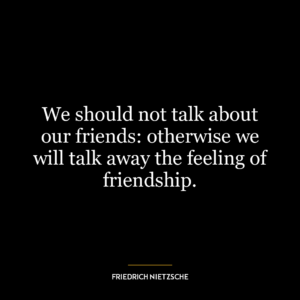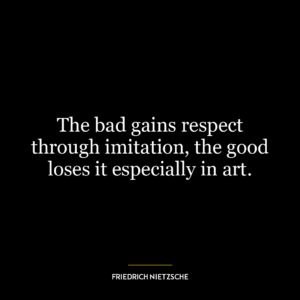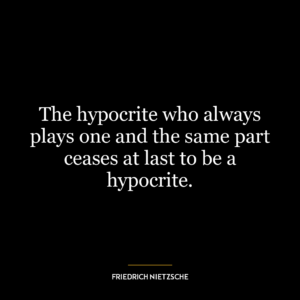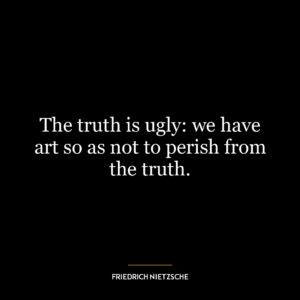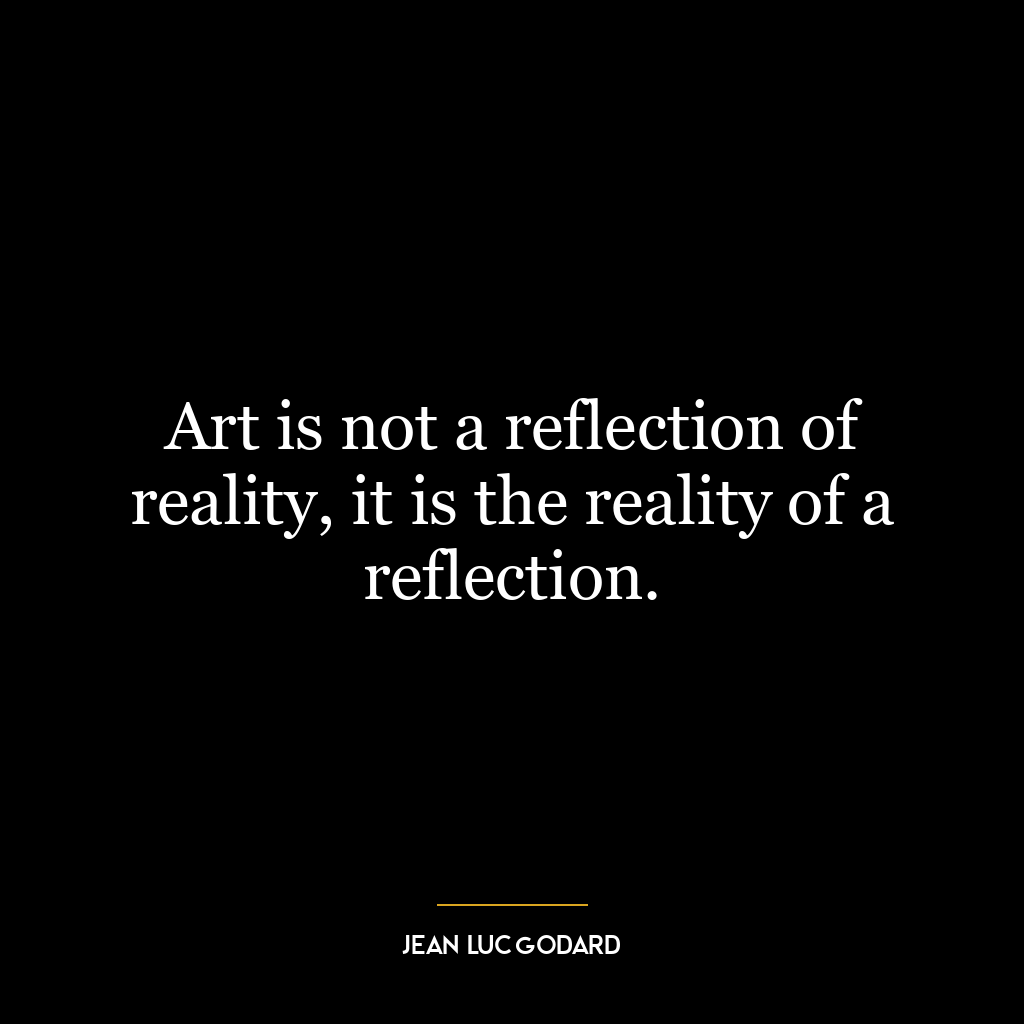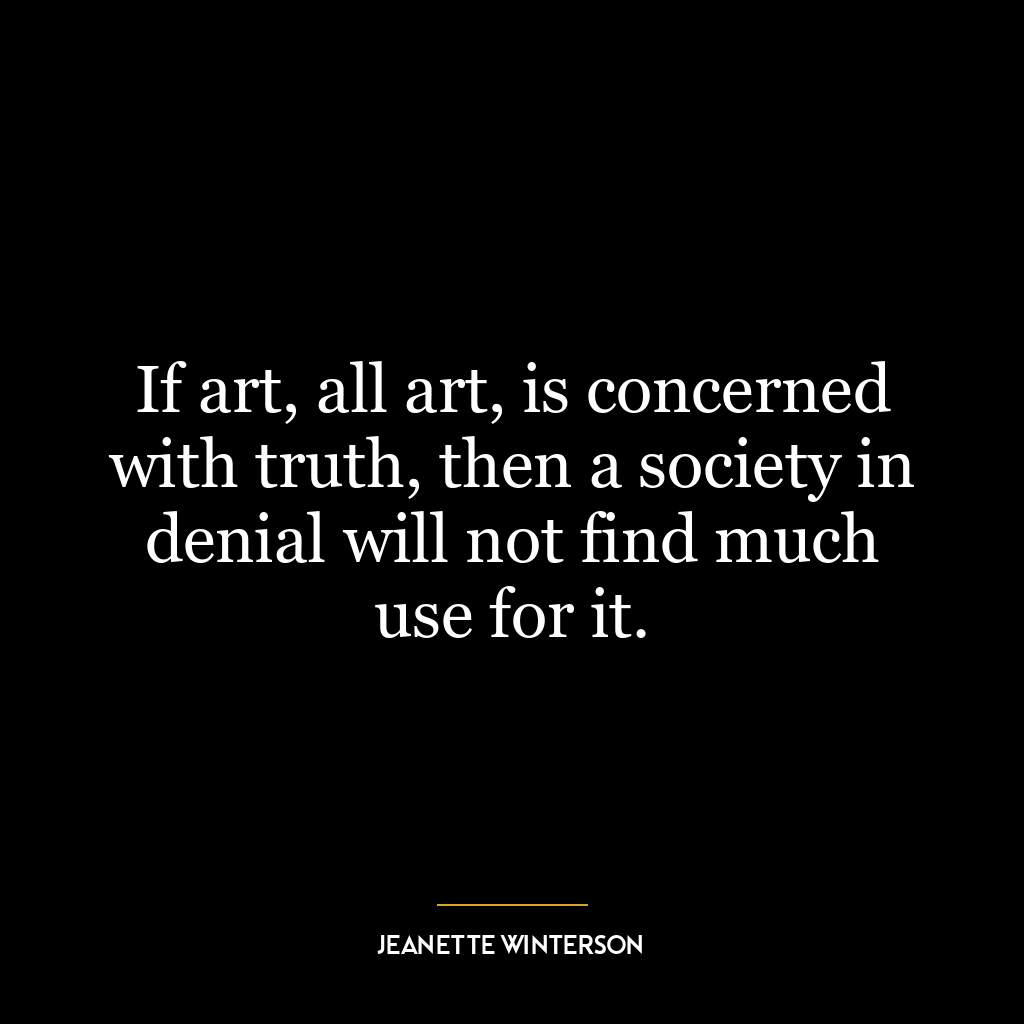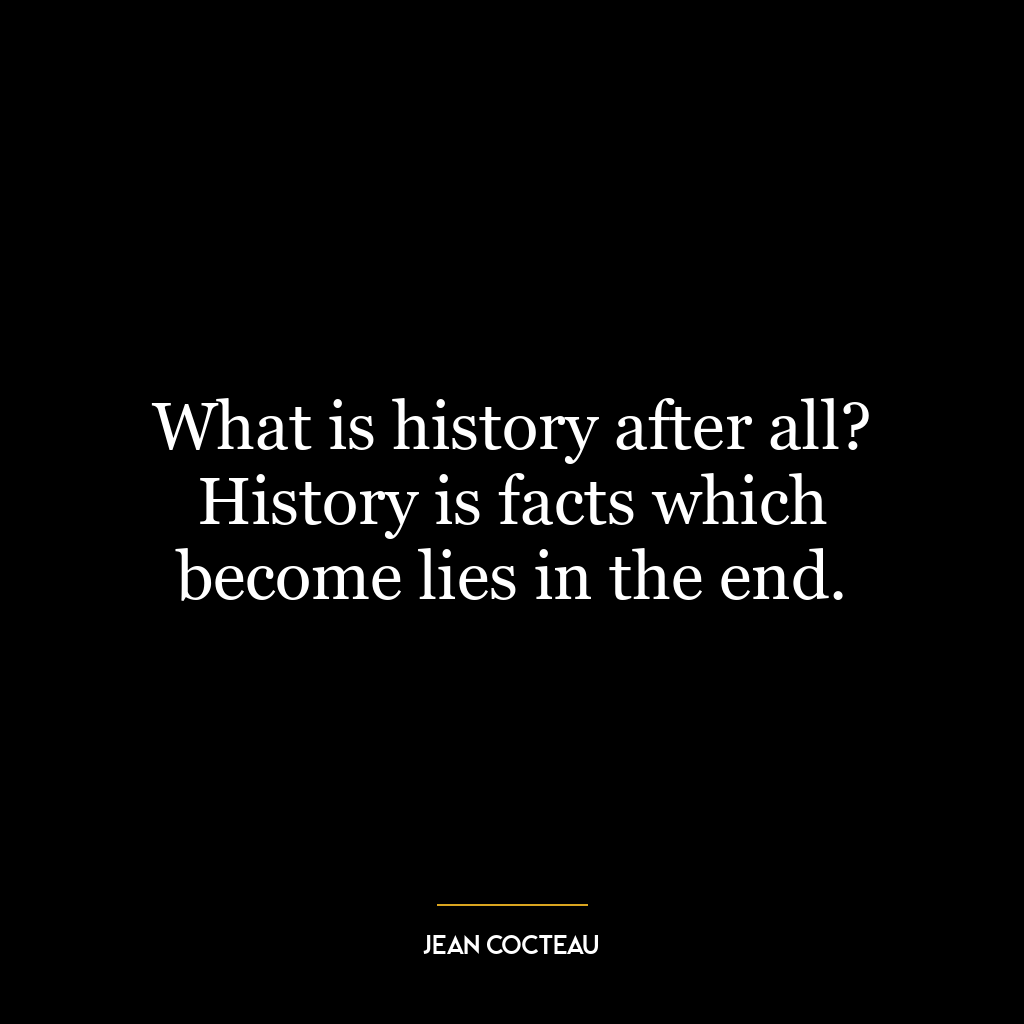Whatever a theologian regards as true must be false: there you have almost a criterion of truth.
This quote implies a deep skepticism towards religious authorities and their proclaimed truths. Nietzsche suggests that what theologians regard as true is often not an objective truth, but a subjective interpretation or a dogma that serves their own interests or the interests of their religion. Therefore, Nietzsche proposes that a criterion of truth could be the opposite of what theologians claim to be true.
This thought is grounded in Nietzsche’s broader philosophy that challenges the existence of any absolute, universal truth. He argues that all truths are in some way subjective and dependent on our perspectives. In this context, theologians, as religious authorities, are seen as imposing their subjective truths on others and presenting them as absolute and universal.
In today’s world, this idea could be applied in many ways. For instance, it encourages critical thinking and skepticism towards any form of authority, not just religious ones. It suggests that we should question the truths presented to us by politicians, media, scientists, or any other authority figures, and seek our own understanding and interpretation.
In terms of personal development, this quote can be viewed as a call to form our own beliefs and values, rather than accepting those imposed on us by society or authority figures. It encourages us to question, explore, and seek our own truths, fostering intellectual independence and personal growth. It also reminds us that our perspective and interpretation of the world are just as valid and valuable as those of any authority.

